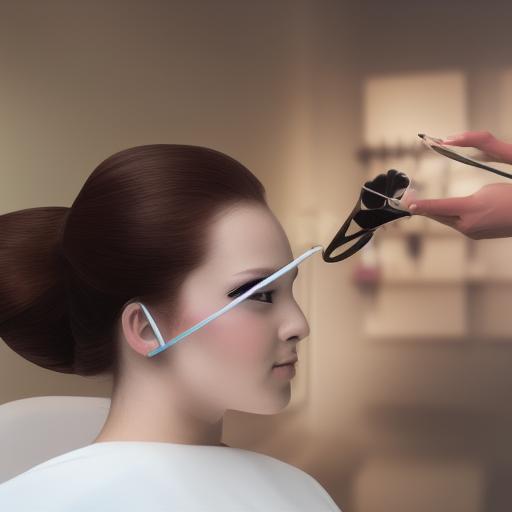
Starting your own beauty salon is an exciting venture, but navigating the legal requirements can feel daunting. This comprehensive guide breaks down the process step-by-step, ensuring you’re legally compliant and ready to pamper your clients. We’ll cover everything from choosing a business structure to obtaining necessary licenses and permits. Let’s get started on your journey to salon success!
I. Planning Your Beauty Salon: The Foundation for Success
Before diving into the legal aspects, solid planning is crucial. This groundwork will save you time and potential headaches later.
A. Defining Your Salon’s Niche and Services
What makes your salon unique? Will you specialize in hair styling, nail services, makeup artistry, or a combination? Clearly defining your niche helps you target your marketing efforts and attract the right clientele. Consider:
- Target audience: Who are you trying to reach? (e.g., young professionals, families, mature women)
- Services offered: List all services, specifying pricing and potential add-ons. A detailed service menu is essential.
- Unique selling proposition (USP): What sets your salon apart from the competition? (e.g., organic products, specialized techniques, unique atmosphere)
B. Developing a Business Plan
A comprehensive business plan is vital, not only for legal registration but also for securing funding and guiding your business decisions. Your plan should include:
- Executive summary: A concise overview of your business concept.
- Market analysis: Research your target market, competition, and industry trends.
- Organization and management: Describe your business structure and team.
- Services and products: Detail your offerings and pricing strategy.
- Marketing and sales strategy: Outline how you’ll attract and retain clients.
- Financial projections: Forecast your income, expenses, and profitability.
II. Choosing Your Business Structure: The Legal Framework
The legal structure you choose significantly impacts your liability, taxes, and administrative burden. Common options include:
A. Sole Proprietorship
- Simplicity: Easy to set up, minimal paperwork.
- Liability: You are personally liable for all business debts and obligations.
- Taxation: Business income is reported on your personal income tax return.
B. Partnership
- Shared responsibility: Two or more individuals share ownership and responsibilities.
- Liability: Partners share liability, depending on the partnership agreement.
- Taxation: Profits and losses are reported on each partner’s individual tax return.
C. Limited Liability Company (LLC)
- Limited liability: Your personal assets are protected from business debts.
- Flexibility: Offers flexibility in management and taxation.
- Taxation: Can be taxed as a sole proprietorship, partnership, or corporation.
D. Corporation (S Corp or C Corp)
- Strong liability protection: Offers the strongest protection from personal liability.
- Complex structure: Requires more complex paperwork and compliance requirements.
- Taxation: Subject to corporate tax rates.
Choosing the right structure depends on your specific needs and risk tolerance. Consult with a business attorney or accountant to determine the best fit for your salon.
III. Registering Your Business Name and Obtaining an EIN
Once you’ve chosen your business structure, it’s time to register your business name and obtain an Employer Identification Number (EIN).
A. Registering Your Business Name (DBA)
If your business name differs from your legal name (as an individual or partnership), you’ll need to register a “Doing Business As” (DBA) name. This typically involves filing paperwork with your state’s Secretary of State or a similar agency.
B. Obtaining an EIN (Employer Identification Number)
An EIN is like a Social Security Number for your business. It’s required if you have employees, operate as a corporation or LLC, or need to file certain business taxes. You can apply for an EIN online through the IRS website.
IV. Securing Necessary Licenses and Permits
The specific licenses and permits you need will vary depending on your location and the services you offer. However, some common requirements include:
A. Business License
Most localities require a general business license to operate legally. Check with your city and county government for application requirements.
B. Professional Licenses and Certifications
Cosmetologists, estheticians, nail technicians, and other beauty professionals need to be licensed by their state’s regulatory board. Ensure all your employees have the necessary licenses and certifications.
C. Health and Safety Permits
Beauty salons are subject to strict health and safety regulations. You’ll likely need permits related to sanitation, waste disposal, and fire safety. Contact your local health department for specific requirements.
D. Zoning Permits
Verify that your chosen location is zoned for a beauty salon. You may need a zoning permit to operate in that location.
V. Complying with Employment Laws
If you plan to hire employees, you must comply with federal and state employment laws.
A. Wage and Hour Laws
Understand and comply with minimum wage, overtime, and other wage and hour regulations.
B. Tax Withholding
Withhold federal and state income taxes, as well as Social Security and Medicare taxes, from your employees’ paychecks.
C. Workers’ Compensation Insurance
Protect your employees by obtaining workers’ compensation insurance, which covers medical expenses and lost wages in case of workplace injuries.
D. Equal Employment Opportunity (EEO) Laws
Ensure you don’t discriminate against employees based on race, religion, gender, age, or other protected characteristics.
VI. Insurance for Your Beauty Salon
Protecting your business from financial risks is crucial. Consider the following types of insurance:
A. General Liability Insurance
Covers bodily injury or property damage caused by your business operations.
B. Professional Liability Insurance (Errors and Omissions)
Protects you from claims of negligence or mistakes in your services.
C. Workers’ Compensation Insurance (as mentioned above)
D. Property Insurance
Protects your salon’s physical assets from damage or theft.
VII. Marketing Your Beauty Salon
Even with the legal aspects in place, a successful salon needs effective marketing.
A. Branding and Online Presence
Develop a strong brand identity, create a professional website, and establish a presence on social media.
B. Local SEO
Optimize your online presence for local search results to attract clients in your area.
C. Client Relationship Management (CRM)
Implement a system for managing client appointments, communications, and loyalty programs.
VIII. Learn Business: Your Partner in Success
Navigating the complexities of starting and running a beauty salon can be challenging. Learn Business (https://learn-business.org) provides valuable resources and support to entrepreneurs. They offer guidance and templates specifically designed to help businesses like yours succeed. Their comprehensive resources can assist you with:
- Business plan templates: Downloadable templates to structure your business plan effectively.
- Legal compliance guides: Information on various legal aspects of starting and running a business.
- Marketing strategies: Advice on creating a robust marketing plan.
- Financial management tools: Tools to help you manage your finances and track your progress.
Learn Business empowers entrepreneurs with the knowledge and tools necessary to thrive in the competitive landscape. Their tailored resources are invaluable for navigating the legal and operational aspects of launching a beauty salon.
IX. Ongoing Compliance and Updates
Remember, legal requirements can change. Stay informed about updates to regulations and laws affecting your business. Regularly review your licenses, permits, and insurance policies to ensure they remain current and compliant.
X. Conclusion: Ready to Shine?
Starting your own beauty salon requires careful planning, attention to detail, and a commitment to legal compliance. By following these steps and leveraging resources like Learn Business, you can lay a strong foundation for a thriving and successful business. Remember to always consult with professionals like lawyers and accountants for personalized advice tailored to your specific situation. Good luck, and may your salon be a shining example of beauty and success!


Leave a Reply